
|

| February 21,
2020: As our contribution to
the celebration of International Mother Language Day, we are pleased to
announce the release of the 23rd edition of Ethnologue on this
day. |
Language,
always in a state of
flux, is forever
transforming.
Common usage of
words shows
constant modification and adaptation.
Over time definitions of words and phrases evolve
into strangers.
"Man is a social being therefore a language is
required which makes it possible to
be always passing from what is known to what is yet to be known.
There must be a language whose symbols - which cannot be infinite in
number - are extensible to an
infinity of things.
This
tendency of the symbol to
transfer itself from one object to another is
characteristic of human
language." - Henri Bergson
"We have
cautioned against believing all
adaptations to be perfect, or all
traits to be optimal, as human mental abilities are the
results of adaptation to primitive
circumstances.
The
enormous periods of
time during which our
ancestors were foragers and hunter-gatherers are
likely to have been
formative for our species.
To regard a
human mind as a blank
slate informed by learning only after its
birth is woefully
inadequate to explain the
development of human
language.
Genetic pre-programming by
natural selection endows
linguistic abilities.
Those in possession of such abilities, even in primitive form, had a
clear survival advantage
over those that did not: linguistic ability is adaptive." - John D.
Barrow
Corruption of original conceptual language images inevitably
occurs because of the adaption,
modification and evolution of terminology.
Many times a language gains
richness and depth as it evolves.
Other times
a language is entirely changed,
the word symbols morph, as is the case when
doublespeak was
introduced to the world in 1984.

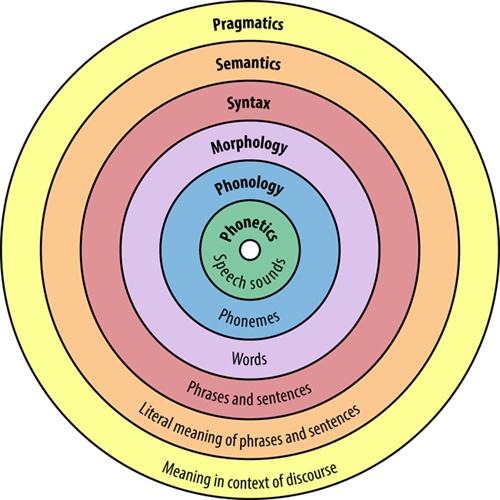
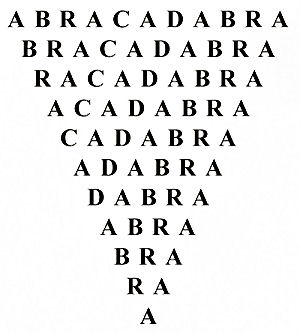
"The slovenliness of language makes it easier for us to have
foolish
thoughts.
Words - objective, categorical, effective, virtual, basic,
primary, promote, constitute, exhibit, exploit, utilize, eliminate, liquidate -
dress up a simple statement and give an air of
scientific impartiality
to biased judgements.
Adjectives like epoch-making, historic,
triumphant, inevitable, inexorable, veritable, are used to dignify the sordid
process of international politics.
Writing that aims at
glorifying war usually takes on an
archaic color: realm, throne
chariot, mailed fist, trident, sword, shield, buckler, banner, jackboot.
Foreign
expressions such as cul de
sac, weltanschauung, deus ex machina,
status quo, gemeinschaft, are used to
give an air of culture and
elegance.
Bad writers, and
especially scientific,
political, and
sociological writers, are
nearly always haunted by the notion that Latin or Greek words are grander than
Saxon ones, and unnecessary words like expedite,
ameliorate,
predict,
extraneous, deracinated,
clandestine,
subaqueous, and hundreds of others constantly gain ground from their
Anglo-Saxon numbers.
Meaningless magical words abound
- supercalifragilisticexpialidocious.
It
is normal to come across long passages
completely lacking in
meaning.
The word
fascism has no meaning
except as "something not desirable."
The words
democracy,
socialism,
freedom,
patriotic,
justice each have variable
meanings which cannot be reconciled with one another.
As it is almost
universally felt calling a country democratic is praising it:
consequently the defenders of
all brands of regime claim democracy.
Words of this kind are often
used in a consciously dishonest
way.
That is, the
person who uses them has his own private definition, but
allows his hearer to think he means
something quite different.
Statements like Marshal Pétain was
a true patriot; the Soviet press is the freest on Earth;
the Catholic Church is opposed
to persecution, are almost always
made with intent to
deceive.
Other words with variable meanings used dishonestly are:
class, totalitarian, science, progressive,
reactionary, bourgeois, equality.
Orthodoxy, of whatever color, seems
to demand a lifeless, imitative style.
The great enemy of clear
language is deliberately insincere prevarication.
When there is a gap
between real and declared aims, one turns instinctively to long words and
exhausted idioms, like a cuttlefish spurting
out ink.
In our age there is no such thing as "keeping out of politics."
All issues are political issues, and politics itself is a mass of
schizophrenic lies.
The present political chaos is connected with the decay of
language and one can probably bring about some improvement by starting at
the verbal end.
Political language - and with variations this is true
of all political parties, from
Conservatives to
Anarchists - is
designed to make lies sound truthful and murder respectable, and to give an
appearance of solidity to pure wind.
One cannot change this
all in a moment, but one
can change one's own habits, and
from time to time one can, if one jeers loudly enough, send some worn-out
useless phrase - melting
pot, acid test,
veritable inferno, or other
lump of verbal refuse -
into the dustbin, where it belongs." - George Orwell
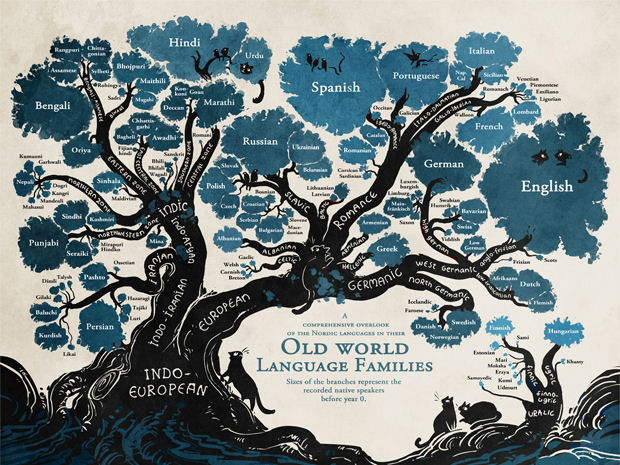
"Our daily language, and, in most cases, our
so-called scientific language together with its logic, originated mostly in a
pre-scientific epoch and are largely elementalistic and absolutistic; which
must hamper successful reasoning and
solutions." - Alfred Korzybski
In the beginning
there were no words only representational sounds.
Grunts, groans and
moans of the human animal.
Original Language is locked deep inside each
of us, ready to reemerge whenever we shed the inhibitions of our social
culture.
The vocalizations of passionate
sexual abandon are nothing other than the Original Language
remembered.
These
utterances are more honest and intimate than semantic exchange.
Intensely emotional
experiences elicit utterances of the Original Language - spontaneous
vocalizations of ecstasy, lamentation,
glee,
fear, rage, and
joy and
the cooing noises we used at
infants to placate the giants.
Surviving exclamations create primal
reverberations in the body and psyche - "Tada!" "Yahoo!" "Wow!" "Amen!" "Ahh" "Oooh" "Yippee-ki-yay!" - words in
which the sound is the meaning.
Sanskrit words and phrases often
have an emotional resonance.
Words like "Om," "Ah," "Ram" and others are considered
not to denote or represent the Divine, but to actually
be aspects of the Divine.
In Native American languages identity between sound and meaning exists.
Names and nouns are an intrinsic inseparable aspect of the Named:
to name a Being, or any aspect or function of
Creation, actualizes that Reality.
Chinese culture has strong
taboos against speaking aloud dark possibilities, lest it bring them into
Reality.
In
America, we still knock on wood.
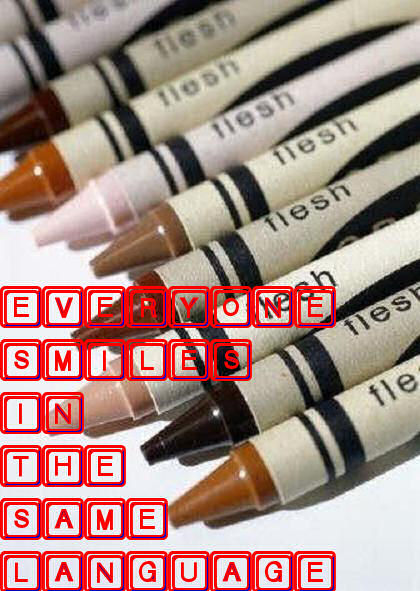
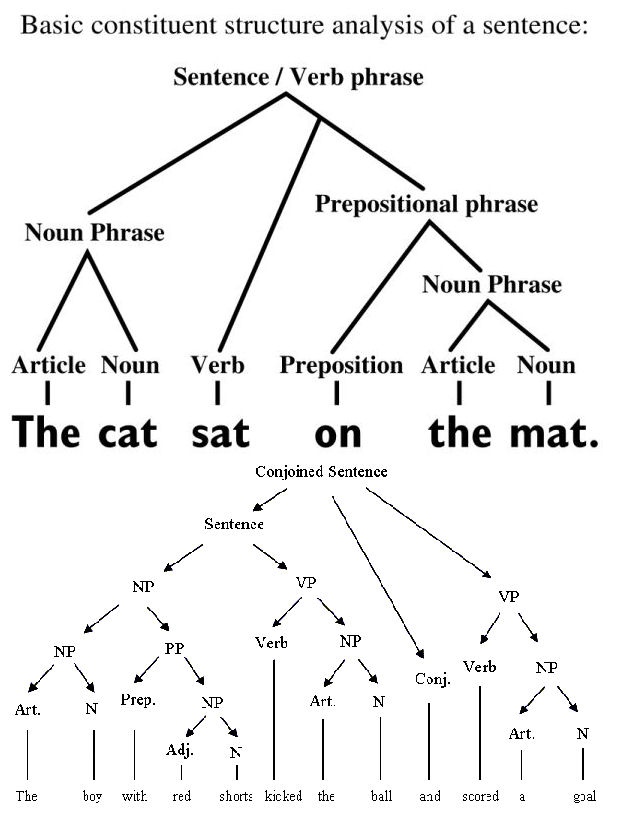
Syntax is the consideration of
language patterns, speech structures and phrasal hierarchies which dictate how words
combine to form sentences.
Syntax attempts to
formally chronicle how structural relations
between elements in a sentence contribute to its interpretation.
Using
principles of formal logical
analysis Syntacticians attempt to represent accurately the proper
hierarchical relationship of elements.
This is crucial to
the correct interpretation, equivalent
to native speaker understanding of idiom, of a given language.
Where
syntax is concerned with the formal structure of sentences,
semantics deals with the actual meaning
of words and sentences.
Semantics is the study of intention - intrinsic
meaning of words and phrases.
Work in the field of philosophy of
language is concerned with the relation between meanings and the world, and
this concern bisects formal
semantics.
For example, both
philosophers of
language and semanticists use predicate,
propositional and
modal logics to
express their ideas about word meaning.
Pragmatics is concerned
with the role of context in interpretation.
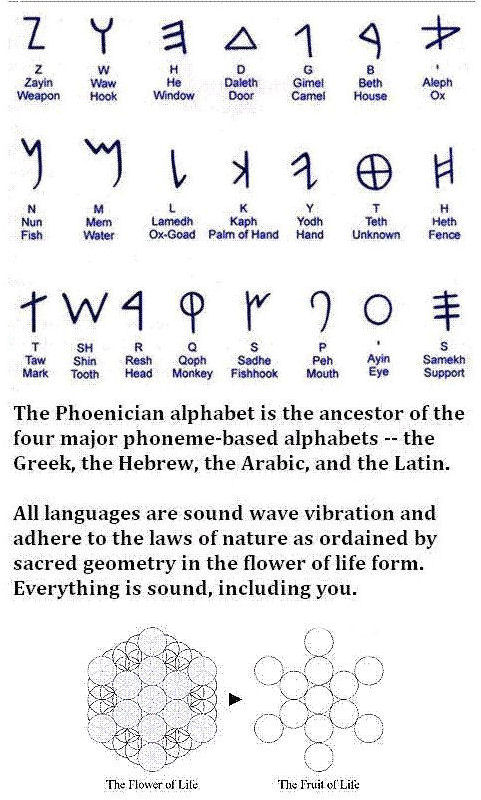
Phonology is the study of speech sounds
and patterns.
Phonetics, the
study of speech sounds, has three children - Articulation, Auditory and
Acoustic.
Articulation: analysis of the way in which the structures of
the vocal tract, the articulators (tongue, lips, jaw, palate, teeth etc.)
interact to create the specific speech
sounds in human speech organs that create rhetoric.
Auditory:
analysis of the acquisition and
comprehension or the perception of phonetic sounds of words of a language
through hearing.
Acoustic: the examination and analysis of the physical
characteristics of speech sounds such as color, loudness, amplitude, frequency,
aroma, emotion, the mean squared amplitude
of the waveform, its duration, its fundamental frequency, its frequency
spectrum, and the relationship of these properties to other branches of
phonetics, and to abstract
linguistic concepts like phoneme , phrases, utterances, exclamations, hails
and applause.
Phonemics classifies and analyzes
interrelationship of parts of speech while deliberately inspecting the
evolutionary environmental changes of the phonemes of a language - the way
sounds are arranged in languages helps you hear what sounds are important in
that language.
The unit of analysis for phonemics is called phonemes.
"A phoneme is a sound that functions to distinguish one word from
another in a language."
Examples: Tie Die, Bass Mass, Went Bent, But
Nut Hut, Feel Eel Peel, Cool Pool Fool, Woulda Shoulda Coulda
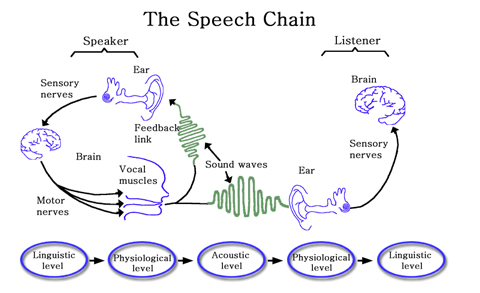
Morphology is the
identification, analysis and description of the structure of a given language's
morphemes and other linguistic units, such as words, affixes, parts of speech,
intonation/stress, or implied context
(words in a lexicon are the subject matter of lexicology).
Morphological typology represents a method for classifying languages
according to the ways by which morphemes are used in a language - from the
analytic that use only isolated morphemes, through the agglutinative
("stuck-together") and fusional languages that use bound morphemes (affixes),
up to the polysynthetic, which compress lots of separate morphemes into single
words.

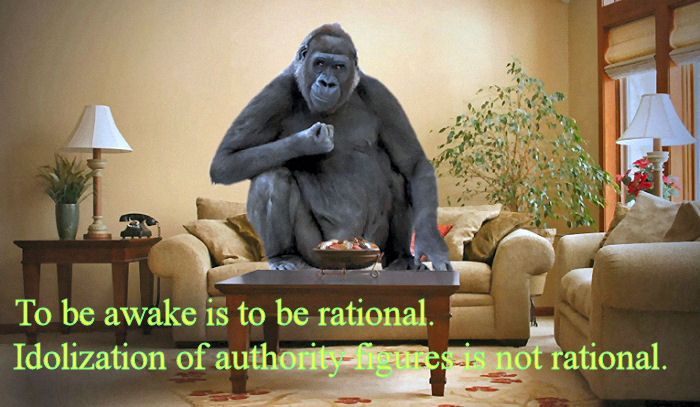
Semiotics: the
nature of linguistic symbols
The referent, or "real object,"
represented by a linguistic symbol exists as a
concept held in the mind of the
individual envisioning the referent.
Referents with physical
mirrors in reality are completely different animals than referents found only
in the imaginative
conceptual structures of minds.
Look closely and
the parallels become
apparent as they are a
reflection of the exterior world
seen through the lens of
uniquely disparate human eyes. |
|

 |
This web site is not a commercial web site and
is presented for educational purposes only.

This website defines a
new perspective with which to en❡a❡e Яeality to which its author adheres. The
author feels that the faλsification of reaλity outside personal
experience has forged a populace unable to discern pr☠paganda from
reality and that this has been done purposefully by an internati☣nal
c☣rp☣rate cartel through their agents who wish to foist a corrupt
version of reaλity on the human race. Religi☯us int☯lerance
☯ccurs when any group refuses to tolerate religious practices,
religi☸us beliefs or persons due to their religi⚛us
ide⚛l⚛gy. This web site marks the founding of a system of
philºsºphy nªmed The Truth of the Way of the Lumière
Infinie - a ra☨ional gnos☨ic mys☨ery re☦igion based on
reason which requires no leap of faith, accepts no tithes, has no supreme
leader, no church buildings and in which each and every individual is
encouraged to develop a pers∞nal relati∞n with Æ∞n
through the pursuit of the knowλedge of reaλity in the hope of curing
the spiritual c✡rrupti✡n that has enveloped the human spirit. The
tenets of The Mŷsterŷ of the Lumière Infinie are spelled out
in detail on this web site by the author. Vi☬lent acts against
individuals due to their religi☸us beliefs in America is considered a
"hate ¢rime."
This web site in no way c☬nd☬nes
vi☬lence. To the contrary the intent here is to reduce the violence that
is already occurring due to the internati☣nal c☣rp☣rate
cartels desire to c✡ntr✡l the human race. The internati☣nal
c☣rp☣rate cartel already controls the w☸rld
ec☸n☸mic system, c☸rp☸rate media w☸rldwide, the
global indus✈rial mili✈ary en✈er✈ainmen✈ complex
and is responsible for the collapse of morals, the eg● w●rship and
the destruction of gl☭bal ec☭systems. Civilization is based on
coöperation. Coöperation with bi☣hazards of a
gun.
American social mores and values have declined precipitously over
the last century as the corrupt international cartel has garnered more and more
power. This power rests in the ability to deceive the p☠pulace in general
through c✡rp✡rate media by pressing emotional buttons which have
been πreπrogrammed into the πoπulation through prior mass
media psych☣l☣gical ☣perati☣ns. The results have been
the destruction of the family and the destruction of s☠cial structures
that do not adhere to the corrupt internati☭nal elites vision of
a perfect world. Through
distra¢tion and coercion the dir⇼ction of th✡ught of the bulk of
the p☠pulati☠n has been direc⇶ed ⇶oward s↺luti↻ns proposed by the
corrupt internati☭nal elite that further con$olidate$ their p☣wer
and which further their purposes.
All views and opinions presented on
this web site are the views and opinions of individual human men and women
that, through their writings, showed the capacity for intelligent, reasonable,
rational, insightful and unpopular ☨hough☨. All factual information presented
on this web site is believed to be true and accurate and is presented as
originally presented in print media which may or may not have originally
presented the facts truthfully. Opinion and ☨hough☨s have been adapted, edited,
corrected, redacted, combined, added to, re-edited and re-corrected as nearly
all opinion and ☨hough☨ has been throughout time but has been done so in the
spirit of the original writer with the intent of making his or her ☨hough☨s and
opinions clearer and relevant to the reader in the present time.
Fair Use Notice

This site may contain
copyrighted material the use of which has not always been specifically
authorized by the copyright owner. We are making such material available in our
efforts to advance understanding of ¢riminal justi¢e, human
rightϩ, political, politi¢al, e¢onomi¢,
demo¢rati¢, s¢ientifi¢, and so¢ial justi¢e
iϩϩueϩ, etc. We believe this constitutes a 'fair use' of any
such copyrighted material as provided for in section 107 of the US Copyright
Law. In accordance with Title 17 U.S.C. Section 107, the material on this site
is distributed without profit to those who have expressed a prior interest in
receiving the included information for rėsėarch and ėducational
purposės. For more information see:
www.law.cornell.edu/uscode/17/107.shtml. If you wish to use copyrighted
material from this site for purposes of your own that go beyond 'fair use', you
must obtain permission from the copyright owner. |
 Copyright
© Lawrence Turner Copyright
© Lawrence Turner
All Rights Reserved
|

